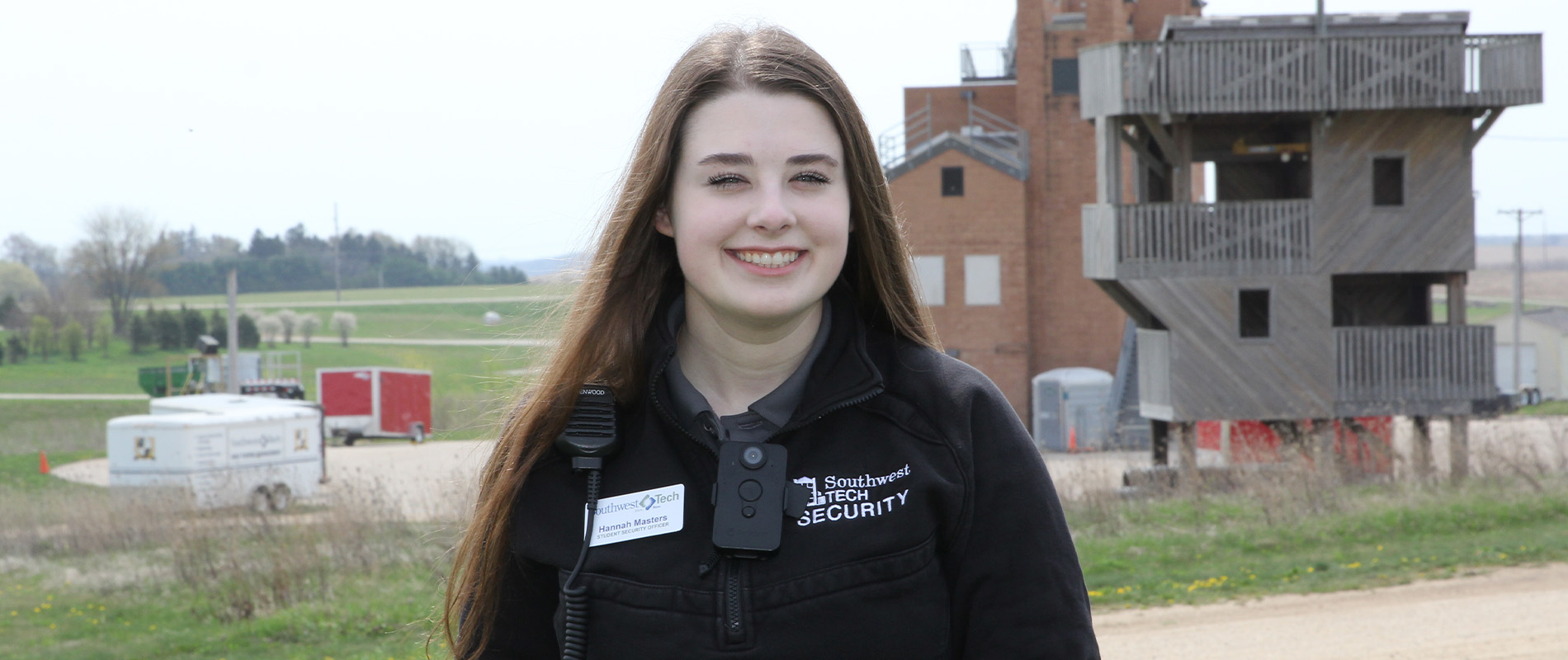The Criminal Justice Studies program provides training in protecting lives and property, as well as preserving the peace while upholding the law. As a student in the Criminal Justice Studies program, you will learn
- Patrol procedures for residential, commercial, and industrial areas
- Monitor traffic for safe and legal operations
- How to properly issue warnings, citations, and make arrests
- How to investigate accident and crime scenes
- How to carry out long-term investigations leading to the prosecution of criminal offenders
- Strategies to maintain the confidence of the public by displaying professional conduct
Graduates of this degree may need to have further training to enter certain Law Enforcement fields. Talk to your advisor about careers you may be interested in.
- Overview
-
Is This Program for You?
If you're a community service-oriented individual who values honesty, order, and detail, a career in law enforcement may be for you.
Students entering the Criminal Justice Studies program should:
- Enjoy working with diverse people.
- Communicate well orally and in written form.
- Be perceptive and analytical.
- Be detail-oriented and patient.
- Not mind working different shifts.
- Have excellent character backgrounds.
- Be in good physical condition.
- Remain objective in emergency situations.
- Have excellent driving records.
Program Basics
- Associate degree, requiring a minimum of two years to complete.
- Classes are offered daytime, face to face, and on campus.
- Fall start.
- Financial aid available.
- Credit for prior learning may be available.
- Curriculum & Costs
-
Cost of Attendance (COA) 25-26
Cost of Attendance (COA) is a total of all the usual expenses of being a student. The COA sets the maximum amount of financial aid a student can receive.
Category Amount Tuition and Fees $4,820 Living Expenses (Housing and Food) $9,148 Books and Supplies $1,466 Personal Expenses $3,608 Transportation $4,018 Charger Tech 360 Fee $600 Loan Fees $84 Yearly Total (Living Away from Home) $23,744 1 Semester Total (Living Away from Home) $11,872 Based on Wisconsin Residents.
Approximate school costs are for a full-time (12 credit) student over a semester span of 17 weeks.
Fees are legislated by the Wisconsin Technical College System Board.
These costs are estimates and are subject to change without notice.
- Requirements
-
Admission and Program Requirements
- Submit Application
- To make sure your classes are the right fit, we consider any previous college credit you've earned, Accuplacer or ACT scores, high school GPA, or an assessment at your registration session. Submit High School Transcripts, College Transcripts, and Test Scores to: Southwest Tech, Attn: Admissions, 1800 Bronson Blvd, Fennimore, WI 53809
- Admissions Meeting: After applying and submitting transcripts, work with your advisor to begin or continue your student success plan to talk about your career interests and goals, develop a plan for paying for college, learn about various funding options, create an academic map, and discuss supports and services. Schedule an admissions meeting by clicking "Make an appointment" with your program advisor.
In order to participate in required field training, all students must provide the following:
- Physical Exam by a Physician
- Background Investigation
- TB skin testing (or titer)
- MMR (vaccine or titer)
- Varicella (Chicken Pox) (vaccine or titer)
- Hep B (vaccine or titer)
- Tetanus/TDAP
- Climb a 35 foot extension ladder
- Use a self-contained breathing apparatus
Additionally, students must successfully complete NREMT psychomotor and cognitive testing in order to receive a Wisconsin EMT provider license. Firefighter I Certification also requires psychomotor and cognitive testing in order to obtain state certification. Exam completion does not impact course grade.
Helpful Academic Background
- Communication
- English
- Social Sciences
- Science
- Math
Program Fees
- This program is eligible for Financial Aid.
- Estimated cost for each semester can be found under the Curriculum tab. Please note that costs are approximate and are based on the current academic year.
- Please discuss additional fee questions with the program advisor or instructor.
- Outcomes
-
Program Outcomes
At the completion of the program, students are expected to be able to:
- Recognize the personal demands required of police.
- Demonstrate proper police investigative procedures.
- Demonstrate effective communication with diverse populations.
- Understand legal principles and procedures to ensure justice.
- Apply Wisconsin statutes when analyzing criminal behavior.
- Demonstrate writing skills.
- Practice good personal fitness strategies.
- Practice effective team member attributes.
- Career Opportunities
-
The profession of law enforcement, also known as police science, is becoming very people-oriented. Law enforcement officers spend a great deal of time communicating and interacting with an increasingly diverse population. Officers are more active in community relations and crime prevention, and they must always be able to react immediately to any level of emergency. Criminal Justice Studies prepares graduates for careers as:
- Police officers
- Deputy sheriffs
- Security guards
- Bailiffs
- Correctional officers
Each of these careers may require special additional requirements and/or training.
Southwest Tech's Career Connections Center offers Services to assist students looking for job placement.
- Transfers
- Prior Learning
-
Credit for Prior Learning
Experience Pays! You've Been There... You've Done That... Let's See If You Can Get Credit For It!
Credit for prior learning gives you opportunities to earn credit for college-level knowledge that you have already acquired. This may be the result of work or volunteer experiences, certifications, apprenticeships, military training, extensive self-instruction, or professional development. Credit for Prior Learning affords you the opportunity to accelerate the completion of your educational goals.
For more information on Credit for Prior Learning see our Credit for Prior Learning page.
At any time, you may Request Credit for Prior Learning.
Criminal Justice Studies Courses that may have Credit for Prior Learning options:
Course # Course Title Challenge Exam
(Demonstration)Challenge Exam
(Standard)CLEPCredentialPortfolio10-801-136 English Composition 1 
CLEP Test - College Composition 10-801-196 Oral/Interpersonal Communication 
10-809-196 Introduction to Sociology 
10-809-198 Introduction to Psychology 
CLEP Test - Introduction to Psychology

